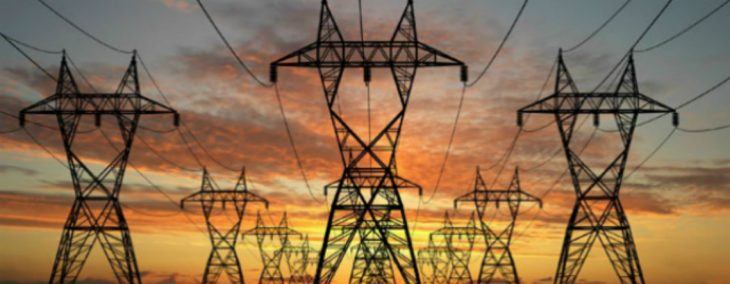Judge approves Entergy Arkansas, Sierra Club agreement to retire coal, natural gas power plants
by March 11, 2021 7:01 pm 6,510 views

A federal judge approved Thursday (March 11) a settlement agreement for Little Rock-based utility Entergy Arkansas to retire two coal-fired plants and a natural gas plant by the end of 2030. Arkansas Attorney General Leslie Rutledge had sought review of the agreement to close the plants operated by the utility of New Orleans-based Entergy Corp.
U.S. District Judge Kristine Baker approved the agreement between Entergy and environmental groups Sierra Club and National Parks Conservation Association. The parties signed the agreement in November 2018 before Rutledge asked state regulators in December 2018 to delay or halt the agreement. Rutledge said she also petitioned federal court to intervene in the case to protect the interest of Arkansas ratepayers. The case was handled in the U.S. District Court Eastern District of Arkansas, Central Division, in Little Rock.
“Customers must be able to rely on their electric provider to protect their interests and to reliably meet energy demands during weather events such as the one our state endured last month,” Rutledge said. “While I am disappointed with the decision of the court, my office will continue to work with the Public Service Commission to protect ratepayers from paying the price for Entergy Arkansas’s agreement to prematurely close these plants.”
The plants to be closed include the 1,800-megawatt White Bluff Steam Electric Station in Jefferson County, 1,800-megawatt Independence Steam Electric Station in Independence County and 528-megawatt Lake Catherine Steam Electric Station in Hot Spring County. The White Bluff and Independence plants are expected to cease coal operations by Dec. 31, 2028, and Dec. 31, 2030, respectively. The Lake Catherine plant is expected to cease operations by Dec. 31, 2027. The coal-fired plants have been operating since the early 1980s. The natural gas plant came online in 1950 and was updated in 1970.
“This final ruling is an affirmation of our plans for the future,” said Kurt Castleberry, director of resource planning and market operations for Entergy Arkansas. “It allows us to move forward with implementing measures to comply with the Arkansas State Implementation Plan that the U.S. Environmental Protection Agency approved in 2018.”
The state plan was created to replace older, less-efficient power plants with newer, more efficient generators. Entergy plans to comply in a way that’s “economically beneficial to the company’s stakeholders while continuing to provide safe, clean and reliable electricity,” according to the company. The timeline in the settlement agreement is consistent will the company’s plans to retire the three plants.
In the original lawsuit filed in federal court, the Sierra Club and other groups alleged that Entergy illegally modified the White Bluff and Independence plants without a permit, in violation of the EPA’s Clean Air Act. The settlement agreement resolves the allegations, according to the Sierra Club. It also resolves challenges by Entergy and the environmental groups to federal and state Clean Air Act regulations intended to improve the air in national parks, wilderness areas and wildlife refuges across Arkansas and throughout the region.
“The settlement finalized today shows that our agreement to close massive polluting power plants is a win, win for Arkansas,” said Glen Hooks, director of the Arkansas Sierra Club. “The agreement will save utility customers up to $2 billion, reduce and eventually eliminate air pollution from two of the dirtiest coal plants in the country, and boost our economy with new renewable energy investments.
“The Independence and White Bluff coal plants are two of the largest unscrubbed coal plants in the nation,” Hooks added. “Their closures will combine to prevent 192 deaths, 111 heart attacks and 1,249 asthma attacks each year. I encourage Entergy Arkansas CEO Laura Landreaux to accelerate the closure of these plants because it will save lives. Replacing electric capacity with renewable energy and energy efficiency is the cleanest, safest and most affordable way for Entergy Arkansas to power its customers.”
According to the Sierra Club, the White Bluff and Independence plants rank sixth and 12th, respectively, in sulfur dioxide and nitrogen oxide emissions among the hundreds of power plants across the United States. The plants also have been linked to increased levels of ozone smog in St. Louis and Memphis.
Also under the settlement agreement, Entergy Arkansas is expected to begin developing renewable energy projects with a total capacity of 800 megawatts by Dec. 31, 2027. At least half of the capacity is expected to be in development by Dec. 31, 2022. Renewable energy options in the agreement include solar, geothermal, run-of-the-river hydroelectric and wind power, including commercial- and residential-scale projects and energy storage, according to Entergy.
In a solar energy webinar in February, Castleberry highlighted the importance of solar energy for the utility. The company committed to developing solar power about 10 years ago and has become the largest solar provider in the state, he said. It has in operation or in the works about 561 megawatts of solar generation. This would power about 90,000 homes and reduce emissions equivalent to removing 200,000 vehicles from the road. The plants are expected to save customers about $300 million over their 20-30 year lifetime. Its existing solar plants, comprising 181 megawatts, can serve about 45,000 homes.
Entergy is working toward a goal of net-zero carbon emissions by 2050. President Joe Biden has goals to achieve a carbon pollution-free power sector by 2035 and a net-zero U.S. economy by 2050.
